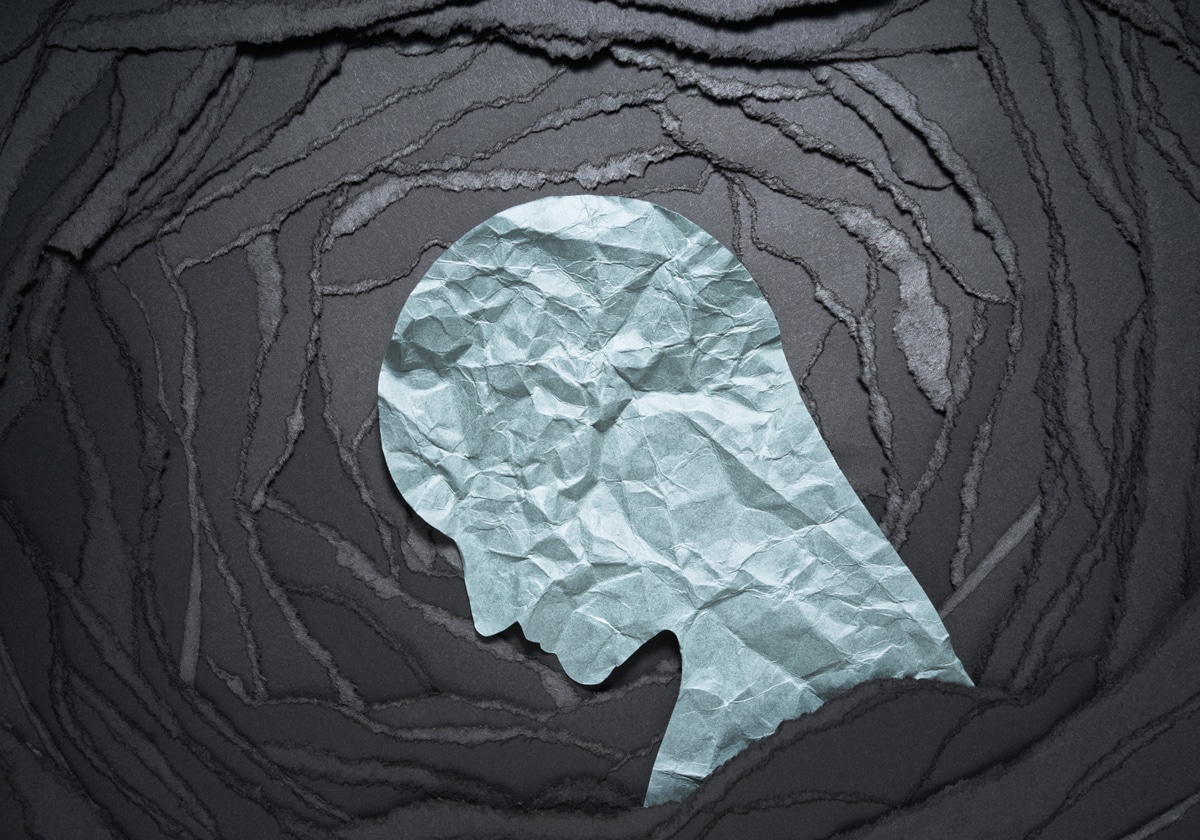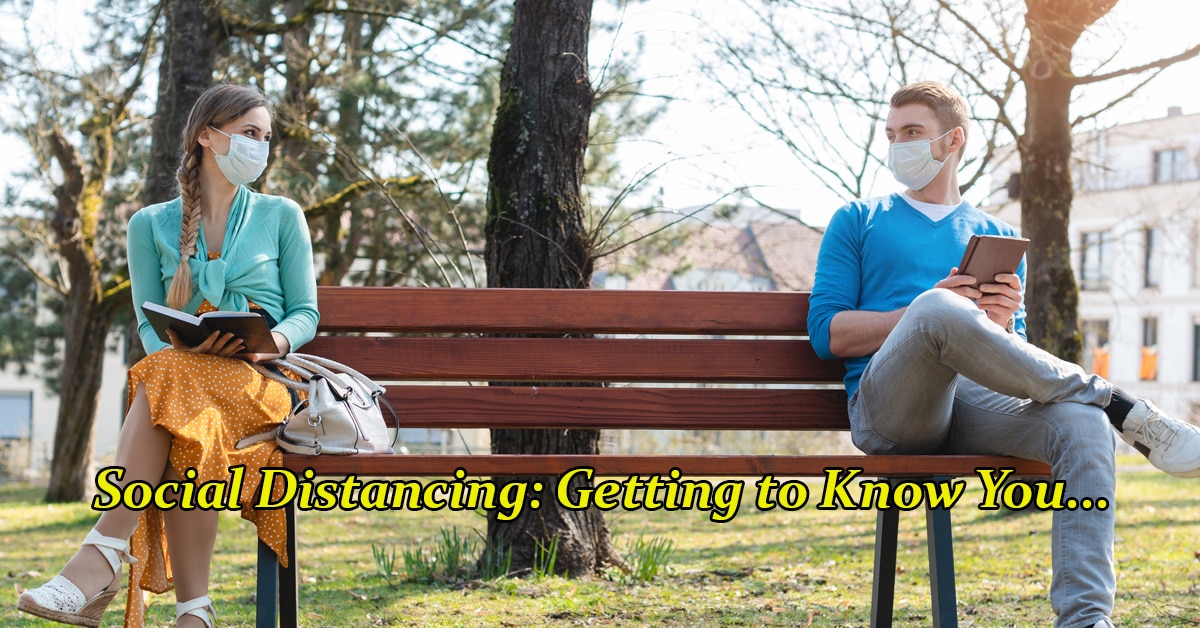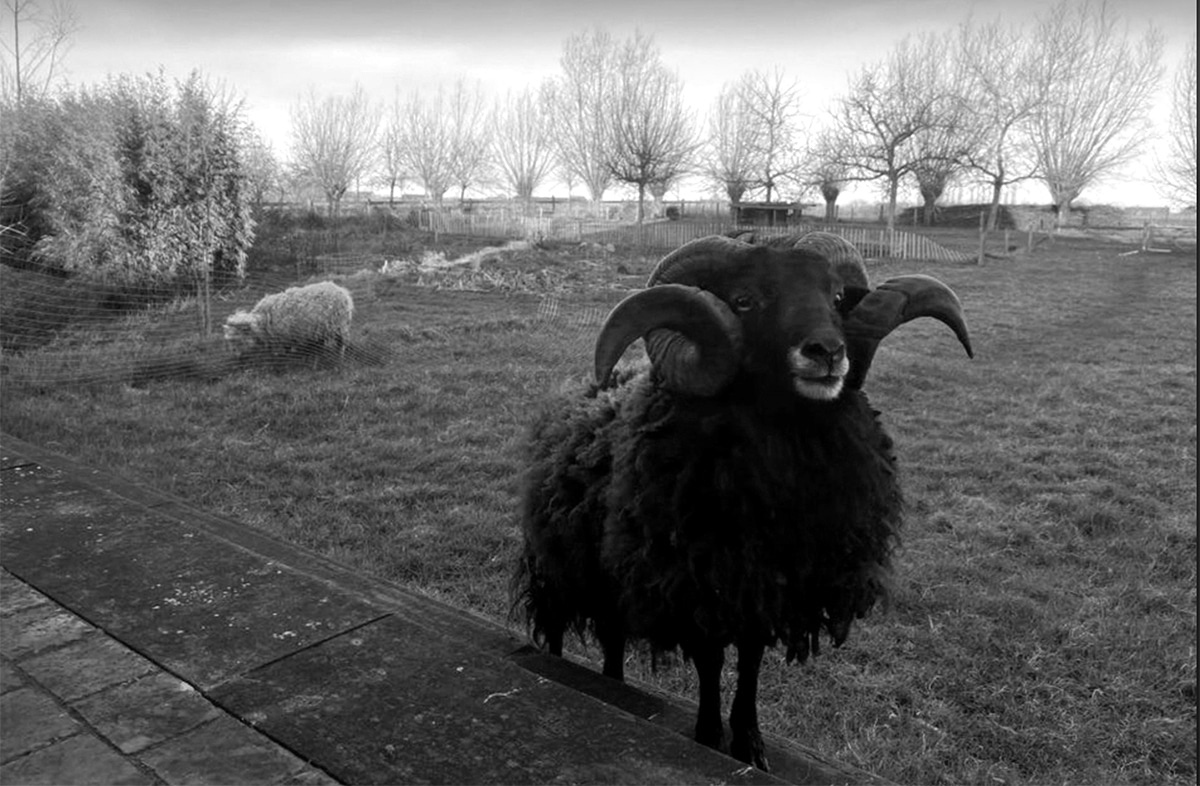

It All Began with Fear
by
Ask people how they felt in March 2020 and they’ll probably tell you they were scared. My husband was scared. My Zoom shrink was scared. My writer friend from the wind-blown plains of Manitoba was scared. My New York cousin with the infectious laugh and big hair was scared. “I thought we were all going to die,” she told me later.
[This is an excerpt from the author’s new book Blindsight Is 2020, published by Brownstone.]
A few oddballs, like Laura Dodsworth, were not scared. A UK journalist, photographer and filmmaker, Dodsworth had previously distinguished herself through her books about men, women, and body parts. One of her books inspired a documentary, 100 Vaginas, which a reviewer described as “an extraordinary and empowering spread of the legs.”
When Covid-19 came along, Dodsworth grew alarmed—not at the virus, but at the fear swirling around it. She watched the fear grow legs and wings and wrap itself around her country. What troubled her most was that her government, historically charged with keeping people calm during times of crisis, seemed to be amplifying the fear. The media, which she had expected to push back against government edicts, gave the fear train an extra shove. Whatever had happened to “keep calm and carry on?”
Dodsworth understood why a government might want to keep people afraid at this time: a scared populace would happily comply with the Covid restrictions, which presumably would keep everyone safer. It was for the public’s own good. But was it ethical to use fear in this way?
In her book A State of Fear, published in 2021, Dodsworth argues that it isn’t.
It’s hard to dispute her contention that the UK government and media chose fear over fortitude. She gives example after example in her book, starting with the evening of March 23, 2020, which she calls “fright night.” On that evening, then-prime minister Boris Johnson described the coronavirus as “the biggest threat this country has faced for decades,” adding that “all over the world we are seeing the devastating impact of this invisible killer.” A day later, the BBC declared the UK on a “war footing” with the virus. “Heartbreak as healthy 21-year-old dies from coronavirus—it’s not just a virus,” the Daily Express intoned the day after that. When Johnson himself caught Covid, the Evening Standard reported on the Cabinet’s “shock at [his] condition” as he fought the “truly frightening” virus.
It didn’t have to be this way. In his address to the nation, Johnson might have said something like, “we’re taking this virus seriously and we want to keep everyone as safe as possible. But the virus doesn’t pose an equal threat to everyone, and most of us have no reason to panic.” The report on the death of the 21-year-old—always a tragedy—might have stated that “sadly, a young person succumbed to the virus, but everything we know so far suggests this is very rare.” And Boris’s own battle with the virus might have been presented as “a fight that the prime minister is thankfully winning and a symbol of hope for the country.” But fear ruled the day, generating clicks and retweets and more fear.
The fear mongering catalogued by Dodsworth in her own country found echoes all over the world. Dan Andrews, premier of the Australian state of Victoria, raised the fear bar to new heights in a July 2020 address: “No family. No friends. No holding hands. No goodbyes. Denied the last quiet moments that we all hope for. That’s how dangerous and infectious this disease is.” In case that didn’t get the message across, he added: “You should be scared of this. I’m scared of this. We all should be.” (It bears noting that it wasn’t the disease, but the government policies, that led people to die alone.)
Anthony Fauci, the physician-scientist who advised the US on Covid-19 management during both the Trump and the Biden administrations, declared the virus his “worst nightmare” in a June 2020 CNN broadcast. (In a juicy bit of irony, Fauci had called out Americans for their overblown fear of pandemics in 2017.) In a bid to get more Germans vaccinated in 2021, then-chancellor Angela Merkel warned her constituents that by the end of the winter, “everyone in Germany will be vaccinated, cured or dead.”
On some occasions, the fearsome proclamations crossed the line between overheated speculation and outright falsehood. In a public broadcast on March 17, 2020, Michael Gove stated that “this virus doesn’t discriminate,” despite study after study revealing a risk gradient that tracked closely with age and other predisposing factors. Drawing from the same playbook, Kamal Khera, a 31-year-old Canadian member of parliament who contracted and recovered from Covid, warned Canadians that the coronavirus does not discriminate based on age or health status, adding that “this virus is literally everywhere.”
Some of the fear seemed genuine to Dodsworth. But not all of it. As she watched Johnson deliver his “fright night” speech, “something seemed ‘off’ and that triggered alarm bells. At a basic level that was hard to pinpoint, it didn’t feel genuine.” Consultations with two mental health experts reinforced her sense that Johnson didn’t quite believe his own words.
There is no way to prove that, of course. Dodsworth brought her own biases to the table, as we all do, and was angling for confirmation. But as the weeks and months rolled by and political leaders throughout the world began flouting their own rules, it became difficult to escape the conclusion that they did not, in fact, view the world outside their homes as a mortal danger.
We all remember the 2020 pandemic hypocrisy parade: Chicago mayor Lori Lightfoot getting a haircut in April, when barbers and stylists were shut down; New York then-governor Andrew Cuomo skipping off to Georgia in July, despite strict guidelines to stay close to home; California senator Dianne Feinstein showing up maskless at the airport despite calling for a mask mandate… Rod Phillips, Ontario’s finance minister at the time, not only flew down to the Caribbean during Ontario’s second lockdown, but dropped a series of social media posts insinuating he was spending the time at home.
A video posted on Christmas Eve found him seated next to his living-room fireplace, a glass of eggnog in hand and a gingerbread house in the background. In fact, he was catching rays in St. Barts on that day and had recorded the video in advance. And the biggest whoopsie of all: in 2022, the so-called Partygate investigation revealed that groups of high-ranking UK government officials, including Boris Johnson himself, had been living it up at 10 Downing Street and elsewhere while public health restrictions prohibited most gatherings.
Predictably, these acts triggered a hue and cry from the public. The general feeling was, “How dare you? The rules are for everyone, not just for the unwashed masses.” Truth be told, I found the hypocrisy more amusing than outrageous. I could hardly blame politicians for stickhandling around rules that had never seemed proportionate in the first place—I only wished they offered the same largesse to their constituents.
Dodsworth devotes a chapter of her book to “nudge theory”—the use of human psychology to steer behavior in a given direction. A pioneer in the use of nudging, Britain launched the Behavioural Insights Team (colloquially known as the Nudge Unit) in 2010 and exported the model to numerous other countries. During Covid, Dodsworth learned from insiders, the nudging took the form of “hard-hitting emotional messages” to increase the sense of threat that would lead people to follow the mandates.
Some people view nudging as an acceptable tool, even a laudable one, in the service of protecting life and health. Not Dodsworth. She likens it to locking up cookies in a jar, a tactic that the parent of a toddler might reasonably employ but a government should not. The tactic can easily slip into the territory of “noble lies”—deceitful statements intended to bring about desired outcomes. But who gets to define what a desired outcome is? And where does the obligation to tell the truth begin and end?
Most would agree that “there are no Jews hiding in this house” constitutes a “good” lie, with no downside. But telling healthy young people they’re in mortal danger from Covid-19 fills them with unnecessary anxiety and robs them of the ability to make informed decisions. And once they discover that the institutions they trusted misled them, they lose that trust. When the next wave or next variant or next pandemic comes along, they won’t take the sky-is-falling warnings as seriously. At the very least, Dodsworth maintains, the nudge techniques used during Covid deserve a public airing.
Dodsworth would also like to see the purveyors of fear held to account. This has happened at least once: in May 2021, a group of individuals and organizations filed criminal charges against Martin Ackerman, head of the Swiss National Covid-19 Science Task force, for deliberately and successfully frightening the population in accordance with Art. 258 of the Criminal Code. The list of complaints includes repeated publication of implausible Covid horror stories, systematic manipulation of ICU bed data, and false statements about hospitalizations and deaths. If nothing else, the threat of such charges may give other fearmongers a good scare—the perfect karmic retribution, if you ask me.
Despite a withering review from The Times, A State of Fear quickly rose through the charts and became a bestseller. Evidently, Dodsworth and I were not the only two people to bristle at the institutional use of fear to achieve social ends. The reviewer dismissed Dodsworth’s concerns as conspiracy talk, which told me he didn’t get it. Dodsworth never presumed a nefarious Grand Plan devised by a posse of bad guys with thin moustaches. She simply argued that the end (compliance) didn’t justify the means (fear).
She had me on her side from the earliest pages of her book, when she disclosed that she feared authoritarianism more than death, manipulation more than illness. On the day Johnson announced the UK lockdown, she “froze on the sofa.” It wasn’t the virus she feared, but the prospect of putting an entire country under house arrest.
Several people have asked me why, like Dodsworth, I never worried about what the virus might do to me. The short answer: reassuring data. (The long answer: Talk to my Zoom shrink. We’re still trying to figure it out. I mean, panic is clearly contagious, so why didn’t I catch it?) Early in the pandemic, I entered my vital statistics into the QCovid® risk calculator to find out my chances of dying of Covid if I caught it. One in 6,500—those were the odds. Granted, I had no underlying health issues, but I was 63 years old. To hear it from the news headlines, I risked life and limb by grabbing a bag of pretzels at the convenience store. One in 6,500? I could live with that.
John Ioannidis’s early studies reassured me still further. An epidemiologist at Stanford University, Ioannidis analyzed global data from March and April 2020 and concluded that deaths in people under 65 without extra risk factors “are remarkably uncommon,” even in pandemic epicenters. “Remarkably uncommon” sounded good to me, especially coming from an evidence-based medicine expert who counts among the most cited scientists in the world.
For the record, I’m no stranger to worrying. Every time my grown children get into a car, I pester my husband: Why haven’t they called yet? If everything were OK, they would have called by now. Do you think they’re OK? The coronavirus never took me to that place—perhaps because the rest of the world was carrying so much fear there was very little left for me.
My sense of kinship with Dodsworth grew stronger when she admitted, a few chapters into the book, that she had never liked the Clap for Carers program, a 10-week initiative that drew everyone out of their homes on Thursday evenings to clap for the healthcare workers treating Covid patients. “It’s not that I’m curmudgeonly, but something about the weekly ritual felt performative, forced, and, well, a bit Stalinist,” she confessed. The Thursday-night pot-banging in Canada never sat well with me, either. On one occasion my husband convinced me to join him, but I could feel the stiffness in my arms, the falseness in my smile, as I whacked the rim of my skillet with a wooden spoon. I wasn’t fooling anyone, least of all myself.
Dodsworth called the effort “controlled spontaneity” and wondered if government actors were somehow involved, manipulating the expression of solidarity behind the scenes. While I didn’t share this suspicion, the we-the-righteous aura surrounding the pot banging left me with a similar discomfort. It also felt like a tacit endorsement of the government policies: Here we are, all in this together, doing the best we can to deal with an unavoidable situation. Smile and keep banging. People who bang pots together don’t question policies together.
Dodsworth continues to write about the response to the pandemic. In an essay called “The Collective and the Self,” she explores the tension between individual and group interests.17 With the benefit of hindsight, the article catalogues the losses accrued over the previous two years. The lost jobs, the lost businesses. The mom-and-pop shops that disappeared after a decade of sweat equity. The lost math classes, lost swim meets, lost friendships. The women who gave birth alone. The people who died alone. The wreckage of lockdowns in the developing world, threatening people’s ability to put food on the table. “Much of this was not necessary, and was not included in previous pandemic plans for good reason,” Dodsworth writes.
During pandemics, she reflects, people have a strong impulse to seek the state’s guidance on how to behave and even what to think. Governments reinforce this tendency, declaring that people must “act as one” to beat the offending pathogen into submission. Individuality becomes a “dirty word when the collective good and solidarity are extolled.”
In Dodsworth’s view, the individual should never get lost, even in a pandemic. When the collective takes over, the current of groupthink becomes too powerful to fight. People jettison their critical faculties and may even lose their basic humanity, like the nurse who reportedly refused to let a man sit with his dying wife “for the greater good.” The insidiousness of groupthink may help explain why individualistic societies such as the Netherlands, Bhutan and the US produce more altruistic people than their collectivist counterparts, as discovered in a 2021 psychocultural study of the world. To put it simply, bowing to the collective doesn’t equate to caring.
The spell of groupthink also disposes people to accept all manner of government encroachment on their lives, and governments are all too happy to oblige. As Milton Friedman has said, “nothing is so permanent as a temporary government program.” This is not quite true, of course. Over the course of the pandemic, governments have lifted many restrictions, bit by bit. But the institutional template for lockdown now exists. That’s what keeps people like Dodsworth and me awake at night.
Dodsworth calls the pandemic response “a beginning” toward totalitarianism, if not the full Monty. Still astonished that society so readily traded liberty for security—which was never assured in the first place—she exhorts us to reflect on the Covid story with a critical eye. “Recovery and healing should be accompanied by misgivings about what we have done, the prickle of conscience and desire to do better.”
Do better? When the world shut down, many people viewed the strategy as the best—the only—possible course of action. People like Dodsworth and me were just fighting reality, they said. I remember the early days, when my friends were trying new bread recipes and my husband was scrubbing down our groceries while I paced the kitchen like a caged animal, muttering “this isn’t right.” Materially I had everything I needed to weather the lockdown gracefully: a warm house, flour and yeast, a blessedly patient husband. But my bones said no. Like Dodsworth, I chose to explore that “no”—and then write a book about it.
Dodsworth concludes her book by reminding us that perfect safety has never and will never exist, a fact of life on earth that Covid made people forget. If we don’t accept this reality, we set the stage for “policies of fear that invade our humanity.” She invites readers to help her “write the end of the story”—a more balanced and courageous end.





0 Comments